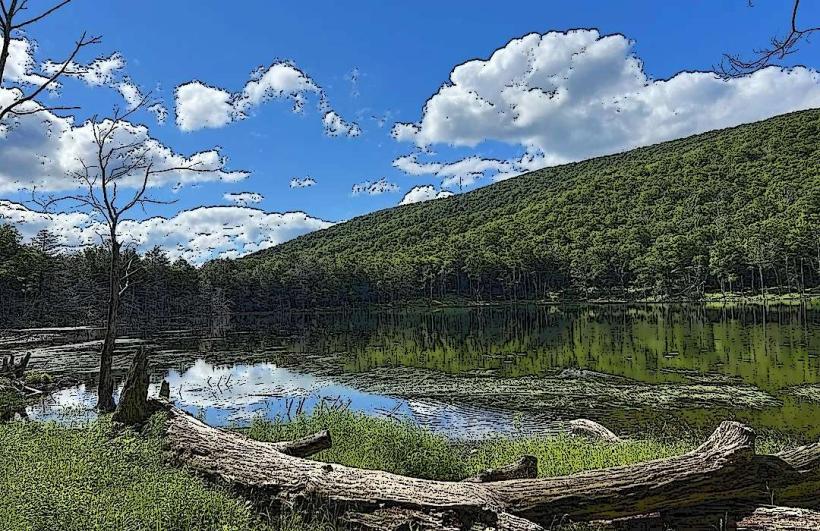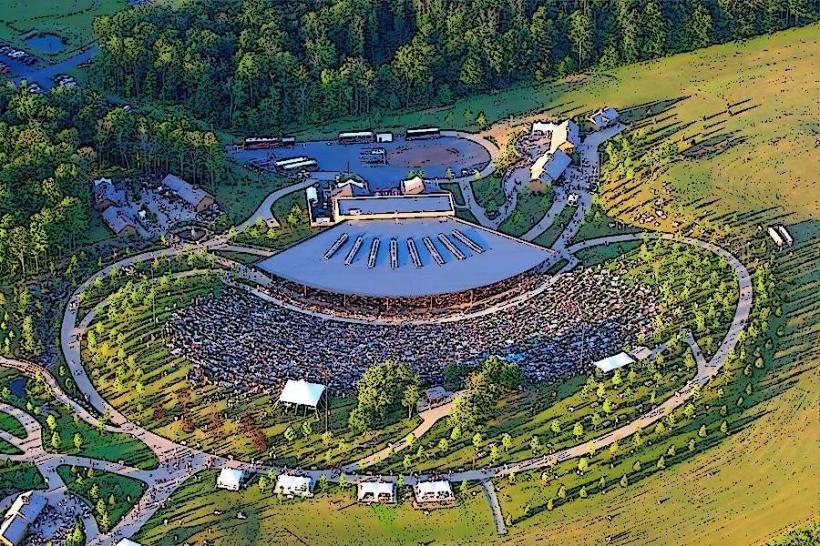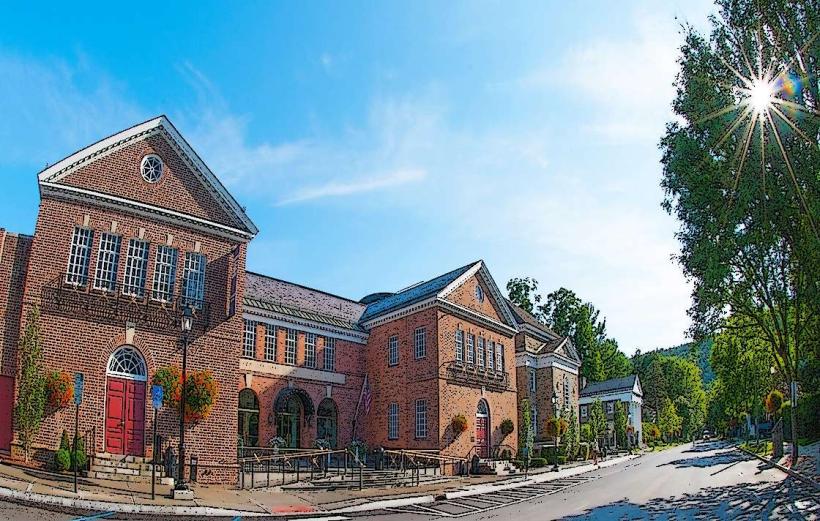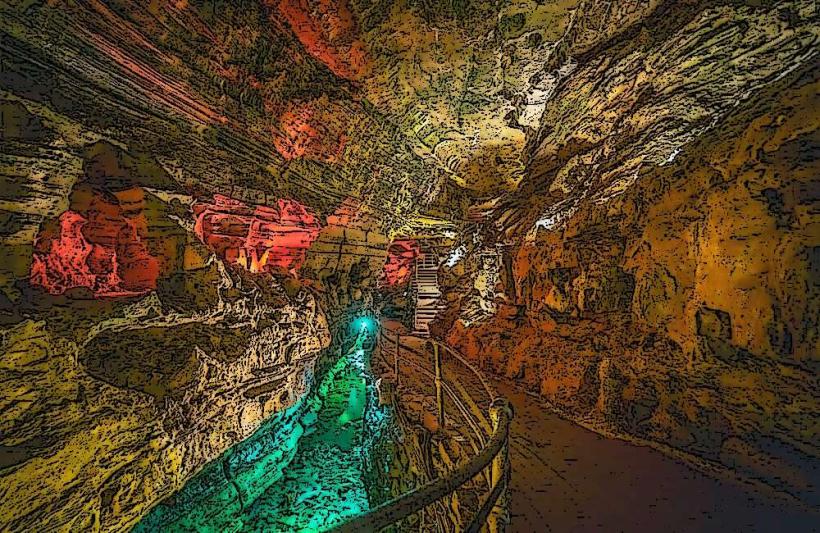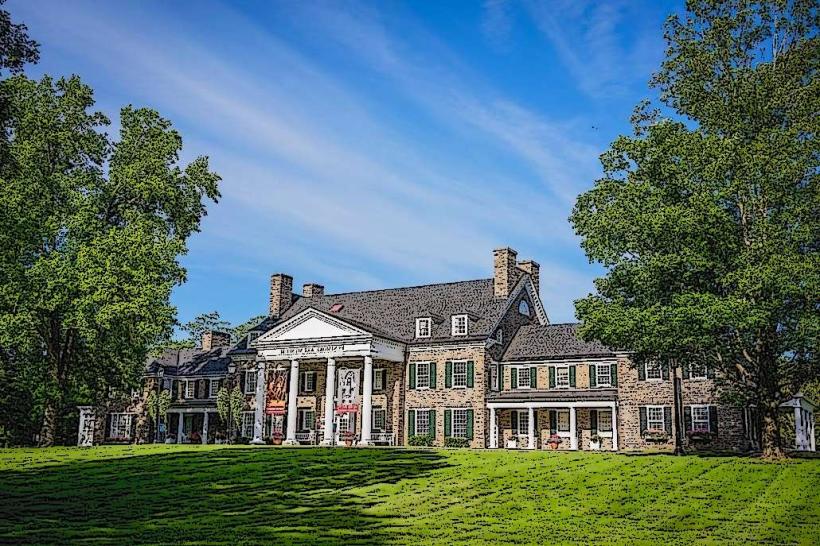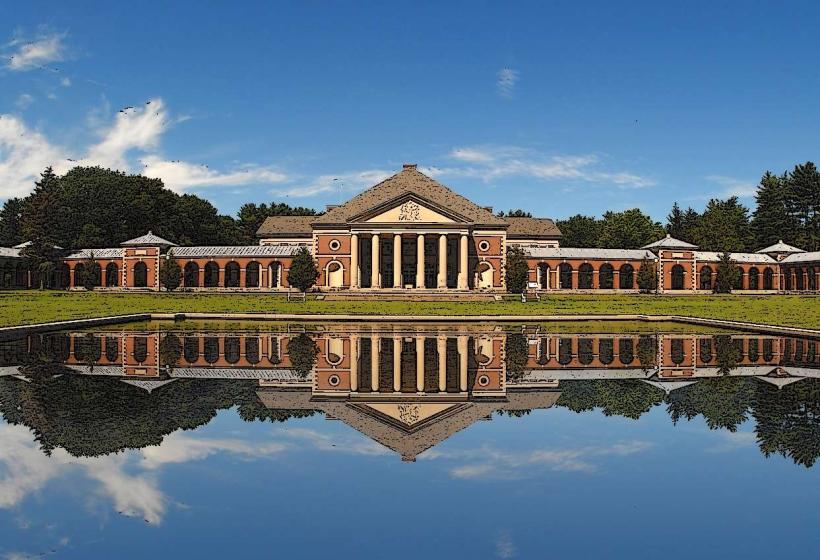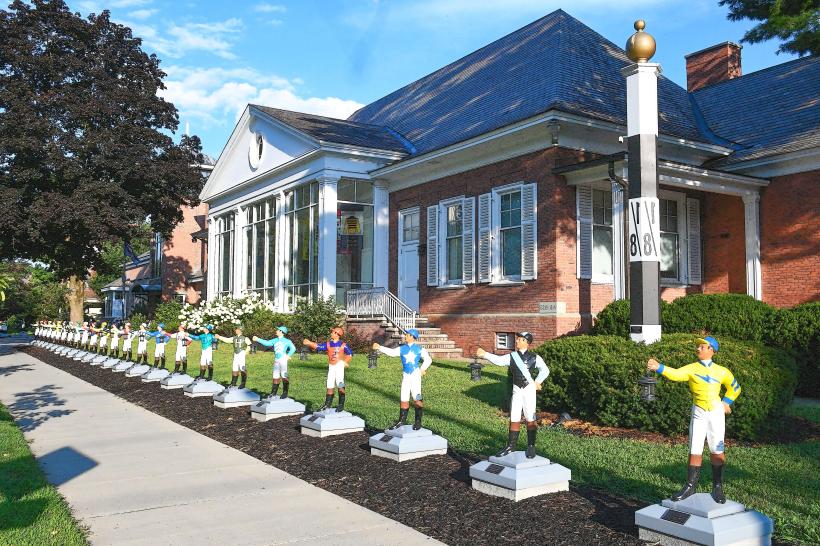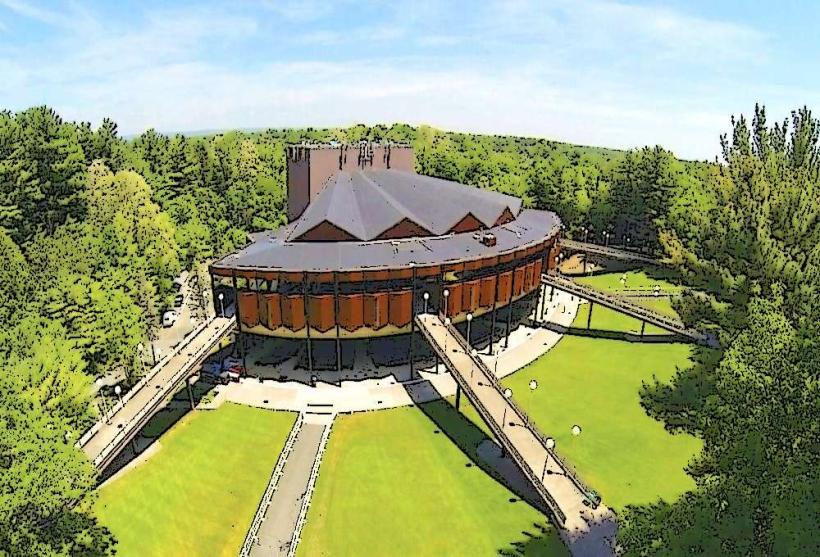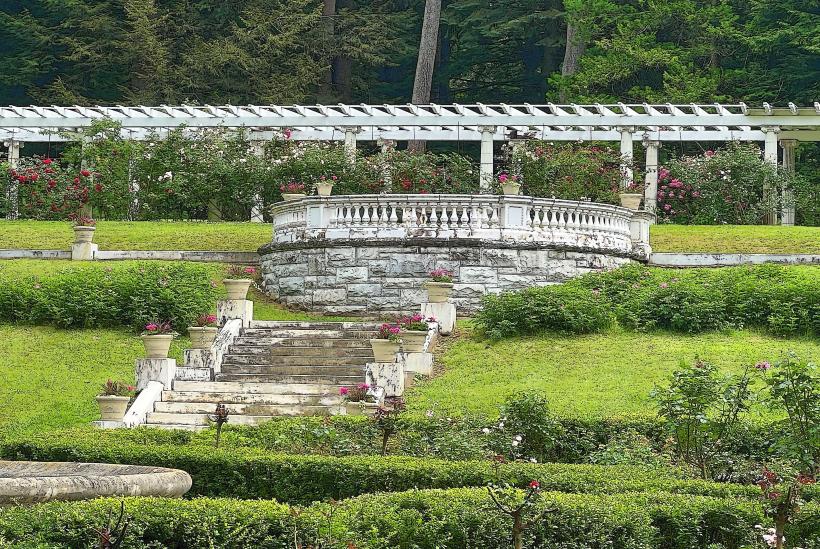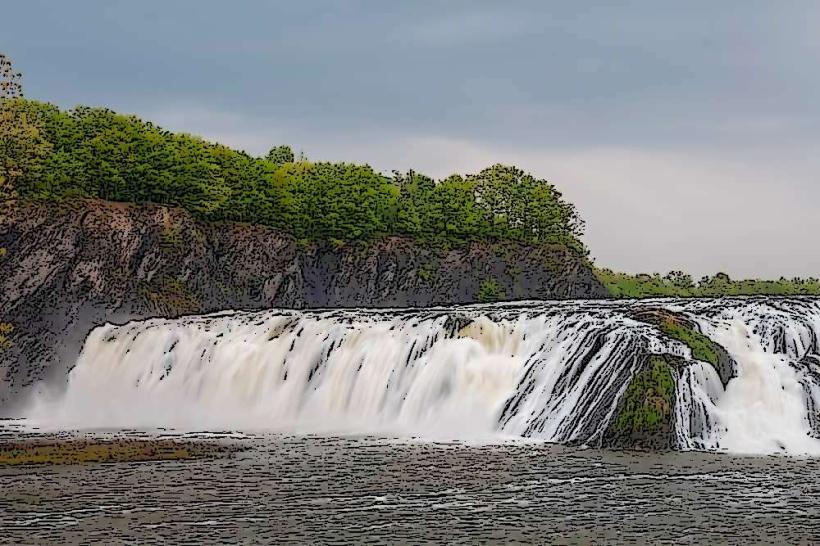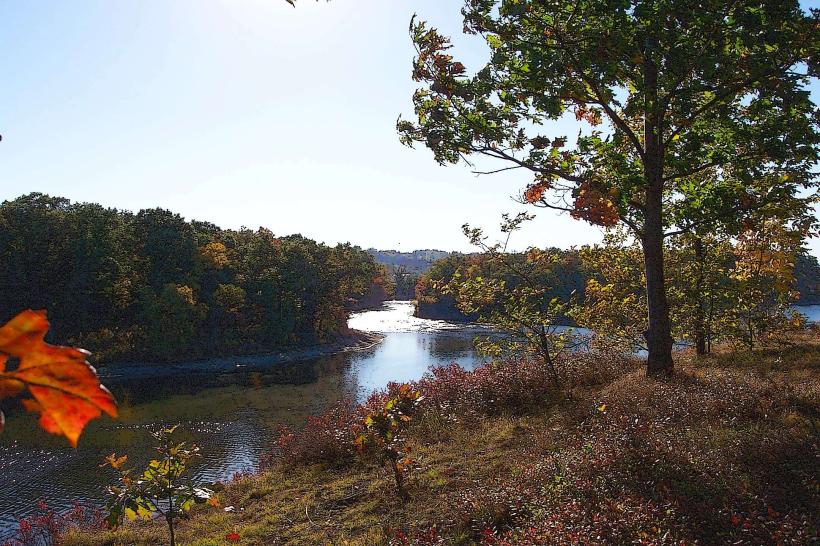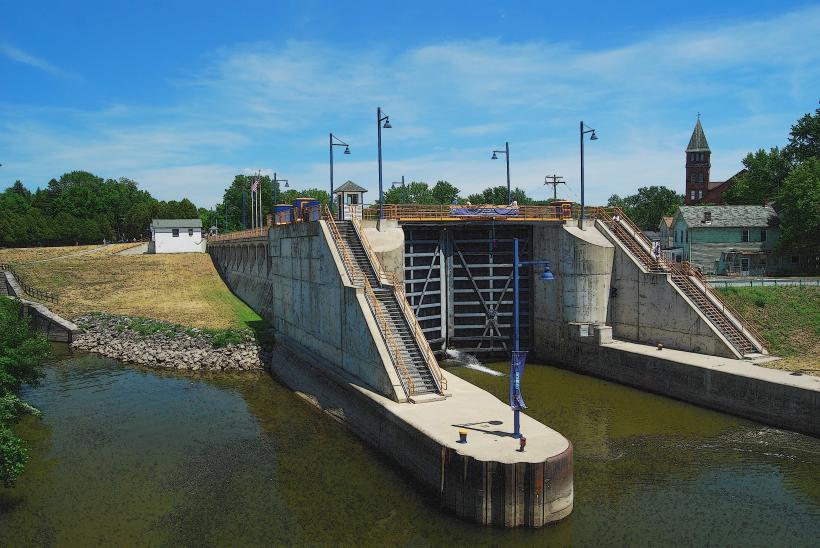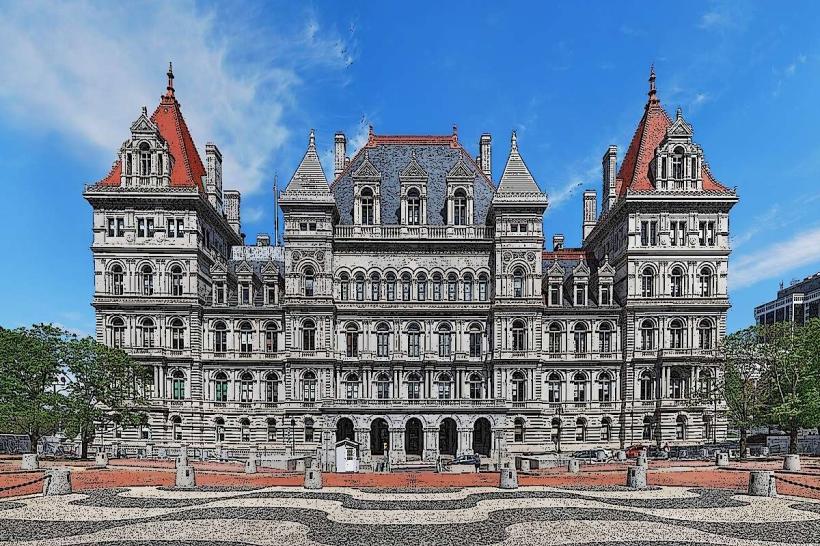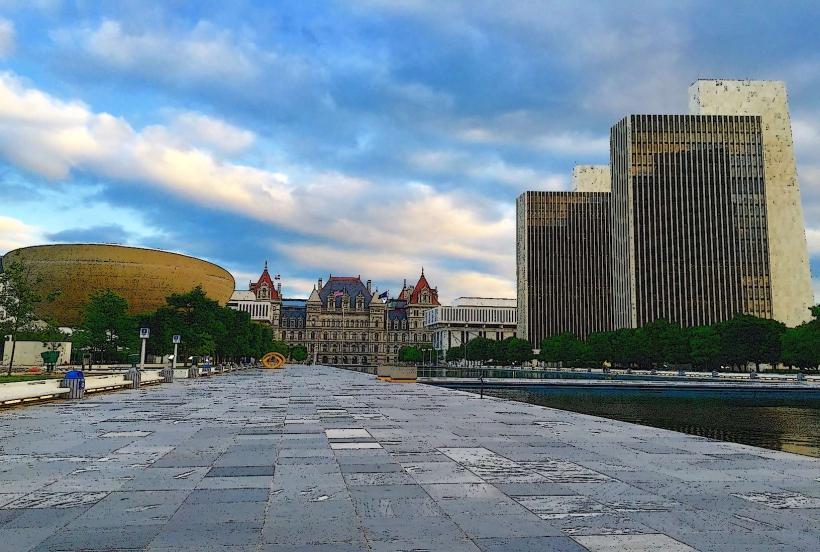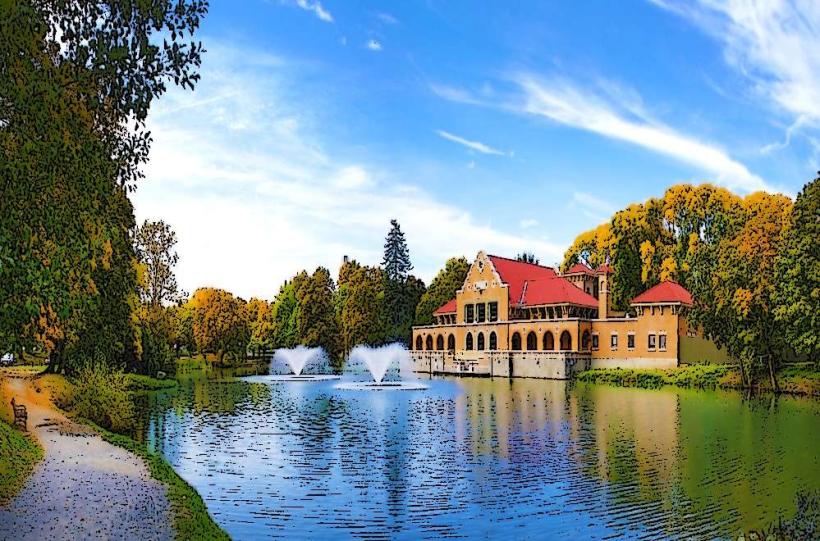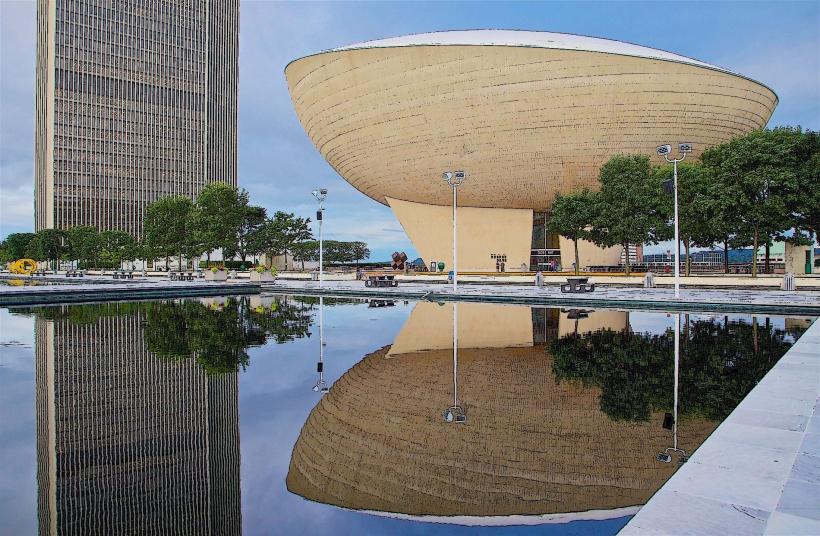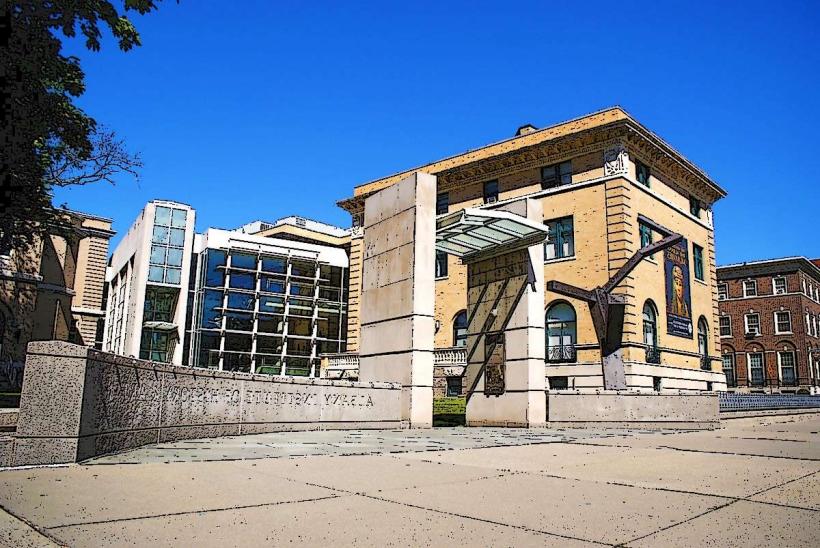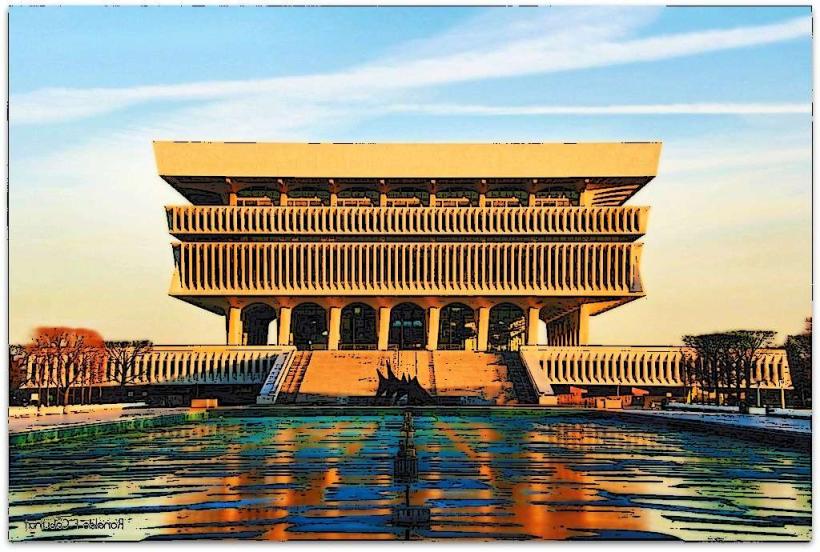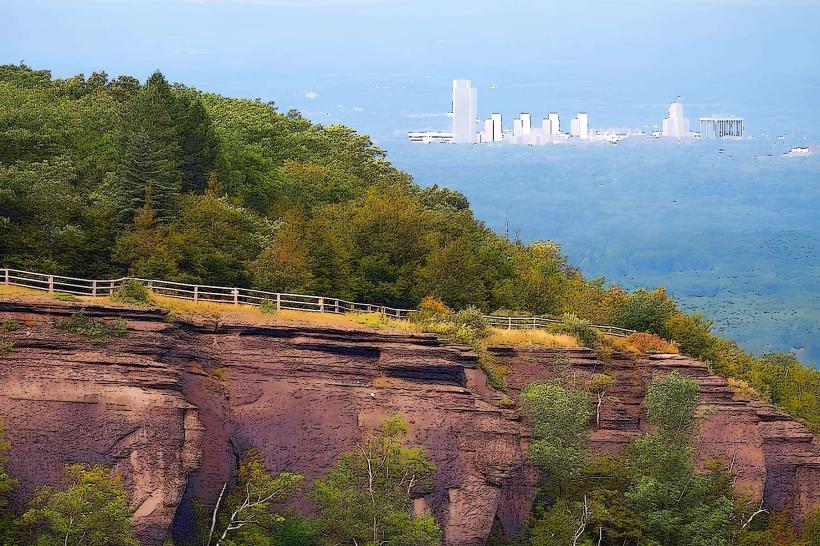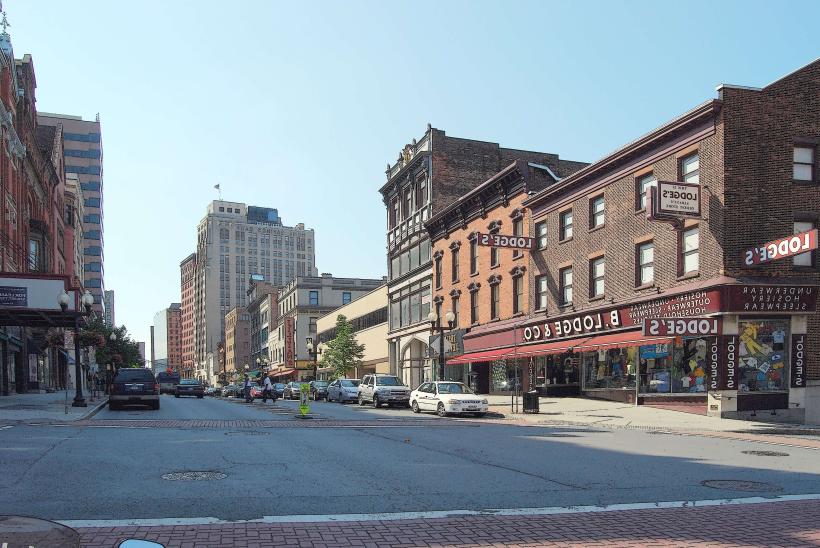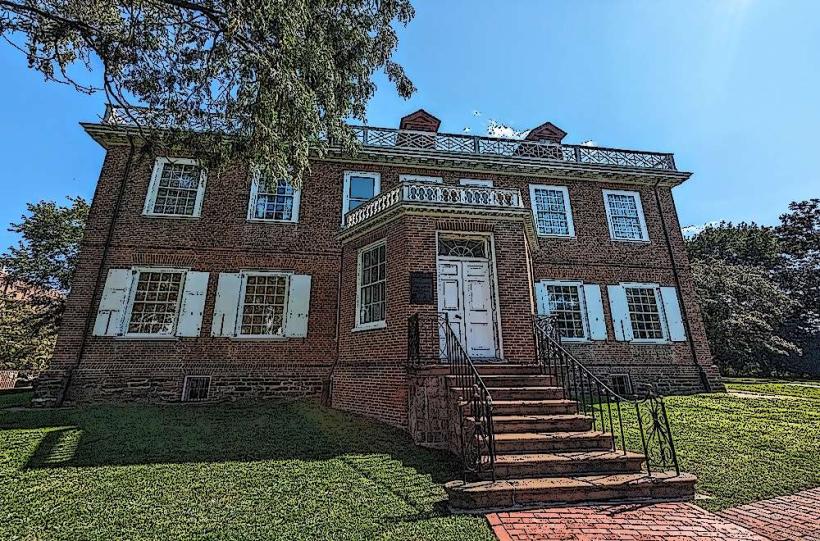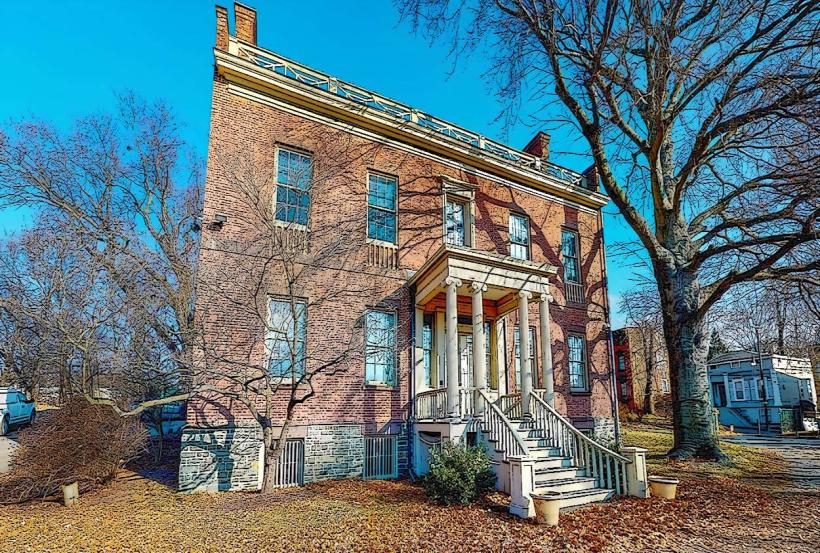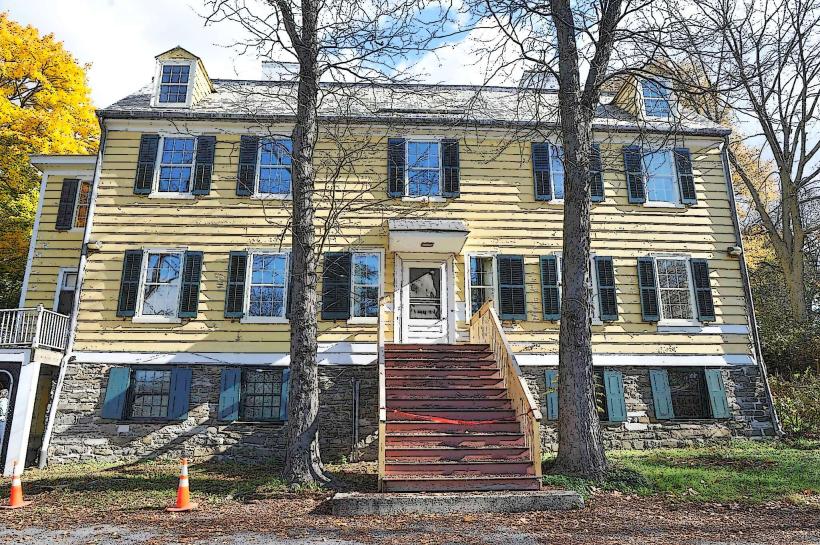Information
Landmark: Albany Rural CemeteryCity: Albany
Country: USA New York
Continent: North America
Albany Rural Cemetery, Albany, USA New York, North America
Albany Rural Cemetery is a historic rural cemetery located in Menands, New York, just north of Albany.
It serves as a final resting place for many notable figures and features a diverse range of funerary architecture and natural landscapes.
Visual Characteristics
The cemetery spans 464 acres, characterized by rolling hills, mature trees, and a network of paved roads and gravel paths. It contains over 150,000 interments. Architectural styles of monuments range from simple granite markers to elaborate mausoleums constructed from marble, granite, and bronze. Water features include a 10-acre lake, Lake Maria, and several smaller ponds.
Location & Access Logistics
Albany Rural Cemetery is situated at 168 Albany Shaker Road, Menands, NY 12109. It is approximately 5 miles north of downtown Albany. Access is via I-87 North, taking Exit 2E for Menands. Turn right onto Albany Shaker Road. The main entrance is clearly marked. Ample parking is available throughout the grounds. Public transport options are limited; the CDTA bus route 18 (Albany-Colonie) stops near the main entrance, requiring a short walk.
Historical & Ecological Origin
Established in 1844, Albany Rural Cemetery was designed by landscape architect John C. Sidney and architect William H. Sidell. It was conceived as a rural cemetery, a movement that emerged in the 19th century to provide park-like settings for burials, moving away from crowded urban churchyards. The site's ecological origin is a glacial till plain, with the landscape shaped by post-glacial erosion and the development of its water bodies.
Key Highlights & Activities
Visitors can explore the grounds for historical research and appreciation of funerary art. Self-guided walking tours are possible, focusing on notable individuals or architectural styles. Specific areas of interest include the Soldiers' Lot, the mausoleum of General Philip Schuyler, and the monument to President Chester A. Arthur. Photography of monuments and landscapes is permitted.
Infrastructure & Amenities
Restrooms are available in the administration building near the main entrance and at designated points within the cemetery. Shade is provided by the extensive tree canopy. Cell phone signal (4G/5G) is generally available throughout most of the cemetery. No food vendors are located within the cemetery; visitors should bring their own provisions.
Best Time to Visit
For optimal lighting for photography, early morning or late afternoon provides softer light. Spring (April-May) and Fall (September-October) offer pleasant temperatures and visual appeal with blooming flora or autumn foliage. Summer months can be warm. The cemetery is open daily from 8:00 AM to 5:00 PM.
Facts & Legends
A notable historical oddity is the presence of the tomb of President Chester A. Arthur, who served from 1881 to 1885. His burial site is a prominent feature. A local "secret" tip is to consult the cemetery's online database or visitor center for a map of notable gravesites to maximize exploration time.
Nearby Landmarks
- The Crossings Park of Colonie (1.5km West)
- Shaker Heritage Society (2.0km Northwest)
- Loudonville Reservoir (3.0km Northeast)
- Albany Institute of History & Art (4.5km South)
- New York State Museum (5.0km South)

